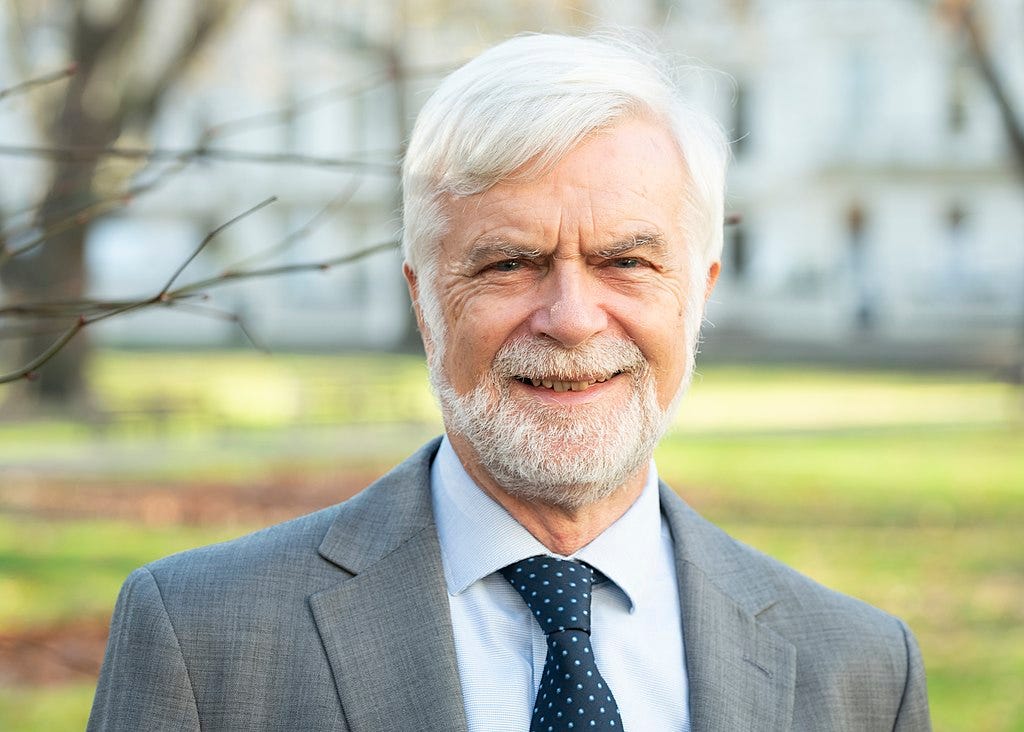News Round-Up: Covid Censorship on Facebook, Man-Made Forest Fires and the End of Pfizer's Corona Money Print
Every week, the editorial team of Freedom Research compiles a round-up of news that caught our eye, or what felt like under-reported aspects of news deserving more attention.
Over the past week, the following topics attracted our attention:
Facebook files: internal company documents show again US government censorship efforts on social media
How many of the forest fires that ravaged Italy and Greece were the work of arsonists?
Britain's prime minister on new oil and gas drilling licenses: it's good for the climate
Pfizer's revenue more than halved: artificial Covid-bubble no longer inflating it
UN climate panel chief: panic-mongering won't help tackle climate change
Internal documents show Facebook acted as Covid censor at White House's request
Jim Jordan, the chairman of the US House of Representatives Judiciary Committee, has released documents and correspondence in several parts over the past week on how Facebook and Instagram, owned by Mark Zuckerberg's company Meta, imposed covert censorship at the behest of the White House. This was done under the guise of 'fighting misinformation', but in reality the platforms were pressured to delete perfectly truthful posts and even jokes. They also restricted the circulation of posts declared inappropriate by the officials.
According to Jordan, the material subpoenaed by the Committee shows that social media platforms censored posts and changed content moderation rules under pressure from the presidential administration. In fact, the heavy pressure from the government was also described by company employees in correspondence between themselves – in April 2021, one employee drew the attention of Zuckerberg and the company's COO, Sheryl Sandberg, to this in a letter. In April 2021, however, it was described how one of President Joe Biden's senior advisers was angry that the platform had not removed a specific post. It was a meme that made fun of the push to vaccinate.

The conversation also reveals that not all Facebook employees were enthusiastic about such censorship of posts, considering it a violation of free speech, but the company still bowed to government pressure. Among other posts, they restricted the distribution of a video by Tucker Carlson, a TV presenter who is disliked by the Biden administration, by 50%, even though the post did not break any of their rules. In July 2021, Biden also publicly pressured social media, saying that platforms such as Facebook were spreading "misinformation" about vaccines and by that "they're killing people". In early August of the same year, Facebook announced it was tightening its rules – a move made under direct pressure from the government. Besides the White House, similar censorship was also demanded by other authorities, who pressured the company to remove truthful information about the side-effects of the vaccines, and the company acted, at least in part, by flagging the posts and restricting their distribution.

None of this is really surprising, as the documents confirm information that was already in the public domain. Zuckerberg has also previously admitted and regretted that, under the pressure from the government, they removed content from their platform during the pandemic that was actually true. Despite this ambiguity, censorship on Covid issues continues – the platform recently also removed our video, which was suggesting the comprehensive safety of the Covid vaccines was not a real fact.
Similarly to Facebook, other platforms were also pushed by the government to censor posts on Covid and other various topics – we have written about it in regards to Twitter here.
The situation with the suppression of free speech is dire to the point that US Federal Judge Terry A. Doughty felt it incumbent to issue an injunction in early July, banning government officials from interacting with social media platforms. In a statement accompanying the injunction, he wrote that it "appears as if the US government has assumed the role of an Orwellian 'Ministry of Truth'".
Is climate change behind the forest fires, or human hands?
Forest and landscape fires are a very serious problem in southern Europe, particularly in Greece and southern Italy, during the summers. UN Secretary-General António Guterres cited the vast outbreaks of wildfires this year as one of the proofs of a catastrophic climate situation, stating recently that the era of global warming had ended and the era of global boiling had begun, and humans were to blame.
Talking about the fires, the highlight is always on them being fuelled by warmer weather and drought caused by climate change. It is, of course, true that hot weather and drought both affect the extent of the fires and make it more difficult to extinguish them, but this says little about the original cause of the fires. What is much more telling, for example, is the drone video released by the Italian police last week, which shows a man deliberately setting fire to a large area in the Calabria region.
The man was arrested by the local police and is believed to be one of the serial arsonist.
Such criminals are not unique in Italy. Last year, 22 arsonists were caught in Calabria, and the farmers' association Coldiretti estimates that in at least 60% of the cases, the fire was started by a human hand. For example, a video from 2021 shows an arsonist near Naples, Italy.
The 47-year-old man was caught by the police and faces a 10-year prison sentence.
In 2021, Italian police also arrested two Sicilian sheep farmers who created grazing land for their sheep by starting wildfires.
However, in 2017, Sicilian firefighters set fires themselves to the land in order to earn more money as they got paid more for putting out the fires. They had been using the same scheme since at least 2013.
Exactly similar suspicions of arson have been raised in Greece as well, where the government estimates the majority of the fires to be caused by human negligence or malicious intent.
To deal with the situation, the Greek government plans to increase the penalties for arson. It is likely that in the future, intentional arson could carry a fine of up to €50 000 and a prison sentence of up to 10 years.
Greece has seen forest and landscape fires in an area of around 500 square kilometres this year, twice as many as last year. But the sad fact is that Greeks have to fight large-scale fires every year, and this year's is by no means the biggest disaster in recent history. In the summer of 2007, for example, a total of 2,700 square kilometres of forest and countryside burned in Greece.
UK prime minister on new oil and gas drilling licenses: good for the climate
This week, British Prime Minister Rishi Sunak gave the go-ahead for hundreds of new licenses to drill for oil and gas in the North Sea, reports The Telegraph. The granting of new licenses is a contentious issue in the UK, and Labour, for example, wants to ban all new oil and gas projects if it wins the next election, in a bid to make Britain a 'clean energy superpower'.

However, Sunak pointed out that Labour's plan would be bad for both the national economy and energy security and would make the UK dependent on foreign energy supplies. In addition, he said, domestic production is good for the environment and the climate. "It is actually better for the environment because there is no point in importing stuff from halfway around the world with two to three times the carbon footprint of the stuff we have got at home. That makes absolutely no sense," he noted.
Sunak added that the plan was in line with the UK's goal of achieving net zero by 2050, when oil and gas are still projected to meet a quarter of Britain's energy needs.
Pfizer's Covid-money-making-machine stopped and the revenues halved
Pharmaceutical company Pfizer published its second quarter results on Tuesday, which showed that the company's turnover had fallen 54% year-on-year to $12.73 billion. The big drop in turnover comes as sales of Pfizer's Covid drugs – the vaccine Comirnaty and the drug Paxlovid – have essentially collapsed. Vaccine sales for the three months were $1.49 billion, down 83% year-on-year. The drug Paxlovid sold for $143 million – a drop of 98%.
The company's financial results are a good example of the extent to which taxpayers' money from around the world was being funnelled unto drug companies, and what the sales results will be when this kind of artificially inflated demand from governments collapses. Pfizer's 2022 sales, for example, exceeded $100 billion. We've written more about drug company’s revenues here.

Meanwhile, the governments do not know what to do with the vaccines they have bought. In Germany, for example, 83 million vaccine doses worth €1.6 billion have been thrown away this year since nobody wants them. Another 120 million doses are still waiting to be thrown away.
In May, the European Union (EU) agreed with Pfizer and their vaccine partner BioNTech that the drug companies would not supply as many vaccines as originally contracted – 900 million doses, about half of which have been delivered. However, EU countries will have to pay a separate fee for each cancelled dose, the amount of which is not disclosed.
UN climate panel chief: panic-mongering will not help tackle climate change
Jim Skea, the new head of the UN's Intergovernmental Panel on Climate Change (IPCC), has come out to say it does no good to say that a temperature rise of 1.5 degrees Celsius above pre-industrial levels is an existential threat to humanity, DW reports. In an interview to Der Spiegel, Skea warned against over-emphasising the climate target. He said we shouldn't be in a state of despair and shock if the average temperature of the planet really does rise that much. In an interview with the German news agency DPA, he expanded on his point. "If you constantly communicate the message that we are all doomed to extinction, then that paralyzes people and prevents them from taking the necessary steps to get a grip on climate change," he said. He also said that the world does not end if it warms more than 1.5 degrees, but it will be a more dangerous world.

Skea is a professor of Sustainable Energy at Imperial College London who has been involved in various climate and energy policy-making working groups over the decades, and has long been involved with the IPCC. He became its chair in July this year.
The UN currently estimates that we will exceed the 1.5 degree limit for temperature rise within a decade.



It is only computer generated climate models that predict a temperature rise of 1.5 deg F in the northern hemisphere. There is in fact no empirical evidence to support this assertion, since there has in fact been a general cooling over the past eleven years. Warming of the oceans over the past 18,000 years, since the ending of the last ice age has caused a rise in CO2 levels, since CO2 is less soluble in warmer water and it outgases from the ocean surface. Warming precedes CO2 increases as proven by the Vostok ice core drilling in the Antarctic as so clearly demonstrated.